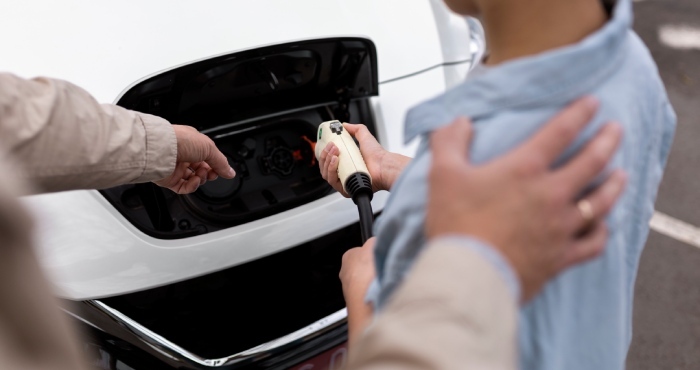Buying a new car comes with the expectation that it will be safe and reliable. But when serious issues like brake failure, stalling, or steering problems appear — and the manufacturer insists nothing is wrong — it can leave you feeling helpless and frustrated.
If you believe your vehicle is unsafe but the manufacturer denies any defect, don’t ignore your instincts. You may be protected under the Lemon law, which offers legal remedies for persistent, unresolved safety problems. Know your rights and act quickly to protect yourself and others on the road.
Understanding the Problem
When Safety and Manufacturer Opinions Clash
While driving, you might experience warning indicators, uneven acceleration, or even complete system breakdowns. It’s possible that a dealership or mechanic has confirmed these problems, yet the manufacturer still maintains that the vehicle complies with all safety regulations. This inconsistency can arise from a variety of factors:
- Occasional Problems: Issues that are not consistently present can be challenging to reproduce during evaluations.
- Insufficient Recalls: The flaw may not have triggered an official recall yet.
- Company Denial: The manufacturer might refuse to acknowledge any wrongdoing to evade liability or financial repercussions.
Common Safety Defects That Are Disputed
Some common examples of serious safety defects that are often disputed include:
- Malfunctions in the braking system can result in diminished stopping ability, significantly increasing the risk of accidents for both drivers and passengers.
- Failures in steering or suspension systems can lead to a loss of vehicle control, particularly when traveling at high speeds or on rough terrain.
- Unexpected acceleration or deceleration without any input from the driver can trigger sudden movements that pose a danger and may lead to collisions.
- If an engine stalls or fails while driving at highway speeds, it can expose the vehicle to the risk of being rear-ended or create perilous situations in fast-moving traffic.
- In electric vehicles, issues like electrical fires or battery overheating can produce smoke, flames, or even explosions if not dealt with quickly.
- Failures in airbag deployment during an accident can prevent necessary protection from injuries, potentially resulting in serious harm to those inside the vehicle.
Immediate Steps to Take If Your Car Feels Unsafe
Cease Operating the Vehicle
If your car presents an immediate danger to yourself or others on the road, refrain from driving it. Make arrangements for the vehicle to be towed to a qualified repair shop or dealership. Operating a vehicle that you know to be hazardous can also affect your legal rights later, particularly if it results in an accident.
Keep a Record of All Issues
Begin documenting every problem you encounter. Note the following:
- The date and time of each incident
- A description of what occurred (e.g., “engine stalled on the highway,” “brakes malfunctioned in wet conditions”)
- Any warning lights or alerts on the dashboard
- Weather conditions and your speed while driving
- Any witnesses present
If possible, take photos or videos. This evidence can be vital in demonstrating a recurring issue with the vehicle.
Request Written Assessments
Always obtain a written report from any mechanic or dealership after service. If they indicate that no issues were found, ensure this is documented clearly. If any repairs were completed, have them note the replaced parts and the technician’s observations. These documents may later bolster your legal case.
Contact the Manufacturer in Writing
Compose a certified letter or email to the manufacturer’s customer service or warranty department detailing your concerns. Include:
- Your vehicle’s VIN and the date of purchase
- A comprehensive account of the safety issues
- The dates when you sought repairs
- Your request (e.g., for repair, replacement, or refund)
This creates an official record and may be necessary under state Lemon Laws.
When Can You Take Legal Action?
Should your vehicle still be covered by warranty and exhibit a persistent issue that compromises its safety or functionality, you could be safeguarded by several consumer protection laws. These laws encompass State Lemon Laws, the Federal Magnuson-Moss Warranty Act, and product liability regulations, all aimed at holding manufacturers responsible for faulty automobiles.
The specifics of Lemon Law protections differ from one state to another, but typical requirements include several failed attempts to repair the same problem, a significant safety defect that remains unresolved within a reasonable timeframe, or the car being non-operational for an extended duration — often 30 days or longer.
California Lemon Law Example
In California, if your vehicle is still covered by warranty and experiences a defect that impacts its usability, worth, or safety, you may qualify for a complete refund, a new car, or compensation for associated costs such as repairs, towing, and rental vehicles — provided that the issue remains unresolved after a reasonable number of attempts to fix it.
Even if the manufacturer insists there’s no defect, California’s Lemon Law lawyers know that a strong case can still be made. With documented repair attempts and ongoing safety concerns, an experienced attorney can help you pursue compensation, a replacement, or a refund—despite the manufacturer’s denial.
The Role of Third-Party Inspections
Obtain an Objective Assessment
Should the manufacturer reject your claim, consider employing a qualified independent mechanic to conduct a comprehensive evaluation. Ideally, select someone who specializes in your specific vehicle brand or model. Their assessment can be influential in legal proceedings or during arbitration.
Review Technical Service Bulletins (TSBs)
Investigate whether your concern has been documented in any Technical Service Bulletins. These bulletins are communications from manufacturers to dealerships regarding acknowledged problems that have not yet been classified as recalls. If you find a TSB that aligns with your issue, it bolsters your argument that the defect is legitimate, even if it hasn’t been formally recalled.
Consumer Protection Resources
Submit a Report to the NHTSA
Should your vehicle have a defect that could endanger safety, it’s important to notify the National Highway Traffic Safety Administration (NHTSA). A sufficient number of reports may lead to an investigation or even a recall.
Visit: https://www.nhtsa.gov/
This is particularly beneficial if other individuals with the same vehicle model are experiencing comparable problems.
Consult a Legal Professional
An expert Lemon Law attorney can assess your case and handle all communication with the manufacturer on your behalf. Thanks to California’s Lemon Law provisions, legal fees are typically covered by the manufacturer—so you get professional representation without paying out of pocket.
Common Manufacturer Tactics—and How to Counter Them
“We Were Unable to Reproduce the Issue”
This is a frequently encountered excuse. If the issue occurs sporadically, make sure to record when it happens, the circumstances surrounding it, and its frequency. Request a test drive with a technician to demonstrate the problem. Retain copies of service documents that reflect your concerns, even if no resolution was provided.
“It’s Just How It Works”
At times, manufacturers might assert that the problem is simply part of the vehicle’s design. This often applies to issues like noisy brakes, rough gear shifting, or electric vehicle battery concerns. Independent assessments and Technical Service Bulletins (TSBs) can often challenge this assertion.
“The Warranty Has Expired”
If your vehicle was still under warranty when the issue first arose and you made a report, you may still have rights even after the warranty period has ended. It’s important to act swiftly as soon as problems become evident.
Real-World Examples
Case 1: Brake Failure Initially Dismissed, Later Acknowledged
In 2023, multiple owners of Hyundai and Kia vehicles experienced unexpected brake failures, which dealership representatives attributed to “driver error” or “adverse weather.” However, after several months, a nationwide recall was issued, revealing that the issue stemmed from a faulty anti-lock brake module. Those who initially reported the problem received compensation once the defect was officially acknowledged.
Case 2: Tesla’s Phantom Braking Issue
Many Tesla drivers have experienced sudden and unexplained slowdowns while driving at high speeds, referred to as “phantom braking.” Although Tesla frequently dismissed or minimized these reports, federal authorities launched investigations, leading to legal action. This situation highlights how consumer advocacy and documentation can effectively confront a manufacturer’s denials.
Preventing Future Problems
Do Your Homework Prior to Purchase
- Review the NHTSA and recall information
- Investigate Technical Service Bulletins (TSBs) related to the vehicle
- Examine consumer feedback and grievances on discussion boards
- Research Lemon Law claim data for the manufacturer
Always Obtain Written Documentation
Verbal assurances from service representatives or manufacturer agents are not reliable in court. Make sure to secure written proof for each appointment, repair, and any claim that has been denied.
Final Thoughts
Experiencing anxiety while driving your car, even if the manufacturer claims everything is fine, can be deeply aggravating. Nevertheless, your safety should never be compromised. You are fully entitled to cease driving if you sense danger, seek a second opinion, and request comprehensive documentation regarding any repairs or issues.
By enlisting the services of a top Lemon Law attorney San Diego, you can take strong legal measures. With expert guidance and thorough documentation at your side, an experienced lawyer can help you uphold your rights, contest the manufacturer’s refusal, and pursue the compensation or vehicle replacement you rightfully deserve.







